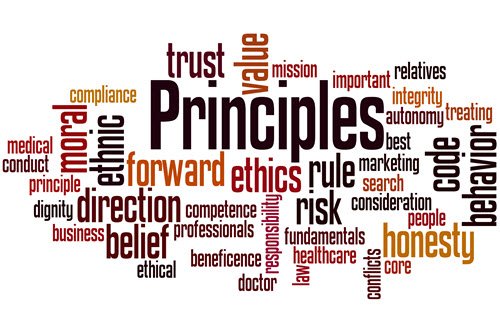Step 12: Having had a spiritual awakening as the result of these StepsThe term "12 steps" refers to the core principles of the approach to addiction exemplified by Alcoholics Anonymous and other similar groups. The 12 steps are a set of guidelines designed to help individuals overcome addiction and rebuild their lives. They were created by the founders of Alcoholics A..., we tried to carry this message to alcoholics, and to practice these principles in all our affairs.
-Step 12 AA
Step 12 is, of course, the final step in 12-step programs. In this step, we are told ‘Having had a spiritual awakening as the result of these steps, we tried to carry this message to others, and to practice these principles in all our affairs’. As we embark on the final step in our twelve-step journey, we learn how to take the wisdom and experience gained in this process and pass it on to others struggling with addiction.
This is a crucial step. One of the main problems that led us into addiction and kept us there, was our destructive tendency towards selfishness. Amongst the main themes of the 12-step process is the realization that we must put the feelings of others on par with our, and sometimes even ahead of our own.
In step 12 we learn to help others systematically and integrate an altruistic way of life into our day-to-day existence. This helps make the world around us significantly better, but it also helps us make more out of our lives. Psychological and sociological studies have shown for years now that serving a greater purpose and helping others makes people happier in the long-term than just about any other activity.
View & Download Free Step 12 Worksheet
A Spiritual Awakening
Completion of the 12-step programA 12 step program includes 12 steps of recovery to help those struggling with substance addictions or behavioral addictions. The 12 steps are also used in programs dedicated to helping loved ones of addicts. 12 step programs include 12 step meetings where members go to share their experience strengt... puts us in a unique position, where we can help addicts currently struggling to find a solution to their problems. Once we have completed all of the steps, the Big Book of AA tells us we have reached a “spiritual awakening.” One of the founders of AA, Bill W., described his spiritual awakening as an immediate and life-altering event.
As he explained in his autobiography: “I stood upon a summit where a great wind blew. A wind not of air, but spirit. In great, cleanPhysical sobriety from a specific substance on which the individual is dependent. This can refer to either when the substance leaves the system or the amount of time since it was last taken. strength it blew right through me. Then came the blazing thought, ‘You are a free man.’” After this moment, Bill W. would never have another drink.
For some of us, that spiritual awakening is a dramatic flash of life-altering inspiration. For others, it is a gradual process. It is like walking a long-winding path and only realizing the distance you have traveled once you look back on the long-winding path.
What does “spiritual awakening” mean?
Either way, the term “spiritual awakening” describes two things: our understanding that we can live productive and happier lives in recoveryThe process by which addicts attempt to break the hold a certain substance or behavior has on their lives. This can refer to participation in a wide variety of methods. What they all have in common, is a sense that life is improving and the addict is regaining control.. It also describes the meaningful connection we have established with a Higher Power12-step programs greatly stress surrender to and daily communication with a Higher Power. Having trust in something greater than yourself is considered essential for returning sanity in the unmanageable life of an addict. This can be a traditional deity, a spiritual entity or a social one such as th... of our choosing. The combination of these factors, and others involved in recovery, has brought us to a new level of mental well-being and spiritual insight.
Carrying the Message
Once you have reached the 12th step, it is not impossible to backslide. One of the major parts of keeping what we have is carrying the message to other suffering addicts.
As the saying goes, “we keep what we have by giving it away.” This means that our lives gain deeper and more satisfying meaning when helping others. Seeing and assisting others in their recovery serves to remind us regularly of what is so great about the programThis refers to any official course of treatment for addiction. This could be anything from in-patient facilities, to 12-step programs to harm-reduction programs. and life in recovery.
Remember, even after we complete the 12-steps and move on to a more productive and happy life in recovery: we remain addicts. We don’t help others because they are addicts and we are now superior. Rather, we help them so that we support EACH OTHER in recovery. The twelfth step is an integral part of our ultimate recovery.
Attraction, rather than promotion
How do we help other addicts in practice? We do not try to proselytize, and we certainly do not try to manipulate or bully anyone into joining a relevant 12-step program. Instead, we lead by example and lead happy and fulfilling lives. We wait until addicts come to us, seeking the happiness and spiritual awakening we have achieved. This is why the 11 tradition of AA includes the phrase “our public relations policy is based on attraction rather than promotion.”

Part of the duties we have as recovering addicts is to meet with individuals interested in the program and guide them before they attend their first meeting. When we do so, we do not judge or make assumptions about these prospective newcomers. Instead, we tell them our stories “warts and all” and see if it resonates for them. At no point do we refer to them as addicts or sick. We let everyone come to their conclusions regarding their problems and the appropriate solutions to these problems. You then remain in touch with newcomers when they are interested in reaching out for help. Never pressure anyone into a solution they are not ready for.
Be advised that this step presents serious difficulties. We end up very invested in the recovery of others. Humans being fallible, we will often find that they relapseRelapse in the context of 12-step programs refers to the act of reverting to harmful behaviors associated with addiction after a period of recovery. This return to substance use or compulsive behavior disrupts the recovery process and often leads to a resurgence of destructive patterns that the indi... and leave the program never to return. Some individuals cannot be helped and others are just not quite ready yet. We must not take responsibility for the journey of others to the point that we feel culpable for their mistakes. All we can do is offer our help; we cannot make decisions for other individuals.
You will eventually find that helping newcomers begin recovery and remain on the path is one of the highlights of your life. The vast majority of those who have worked on the steps report that fulfilling this last step is the most joyful and rewarding part of the process. It is then that you have fulfilled and worked the 12th step, by becoming a genuine source of help and support to those still hurting from the ravages of addiction. However, you do not stop there. Like all of the other steps, this one is meant to sustain you and help you thrive throughout a lifetime of recovery.
< Step 11







